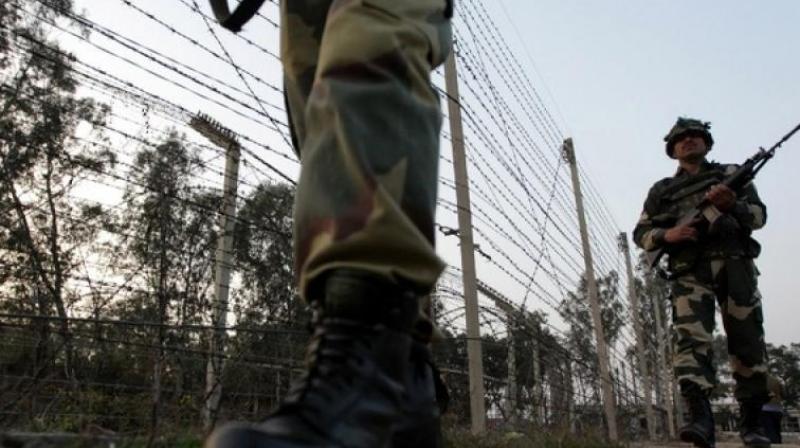Implement ceasefire but don't relax vigil

India-Pakistan relations are as tricky to guide, track and predict as the Indian monsoon, whose broad cycle is well-understood and yet its behaviour hard to anticipate with any well-defined sense of ease or accuracy. Rains on time are, nevertheless, welcome even if their pattern may stray afterward. In the same way, when even lip service is paid to return to the conditions of ceasefire on the Line of Control (LoC), a cautious welcome is in order. Breaking a long spell of frequent and regular mortar exchanges on the LoC, whose tempo was raised by the Pakistani side after the killing of the Kashmiri militant Burhan Wani in July 2016, the directors-general of military operations (DGMO) of India and Pakistan recently agreed on the hotline between them to once again faithfully implement the ceasefire agreement reached by the two countries in November 2003. The initiative was apparently taken by the Pakistani DGMO.
The civilian population living on both sides of the LoC (in J&K), as well as the International Border (IB) that demarcates the territories of the two countries in other parts, are badly affected by the exchange of fire and frequently have to be evacuated from their villages, and crops and livestock suffer. This may be of special interest to the Pakistani military as national elections are due in Pakistan on July 25. This may be the motivation for Pakistan suddenly remembering the ceasefire agreement. That doesn’t mean we should reject it. In fact, the aim of Indian policy should be to make Pakistan adhere to the 2003 pact. This does not, however, mean that India should relax its vigil. The border will still have to be closely monitored for infiltrators who are pushed into the Indian side with the help of the Pakistani Army and paramilitary. At the same time, even if the ceasefire holds on the LoC, terrorist activity in J&K will need to be instantly checked and tightly monitored.
There can be no let-up on that score although the Union home ministry has announced a Ramzan ceasefire in the Valley. This means that in the Muslim fasting month, the security forces will not initiate action. But they will retaliate and also rush to the rescue of civilians. After making pro forma statements in response to the conditional Ramzan ceasefire, the separatist Hurriyat Conference, which first asked tedious questions of the government as reflex reaction, went on record that their actions will depend on what Pakistan does. Now that Pakistan has urged implementation of the ceasefire agreement in the border areas, it is to be seen if the Hurriyat stays its hands from any incitement of Kashmir’s civilian population, which is its stock-in-trade. But even if it does that, India must not lose its sense of balance when it comes to dealing with civilians in Kashmir and respecting their individual rights.

